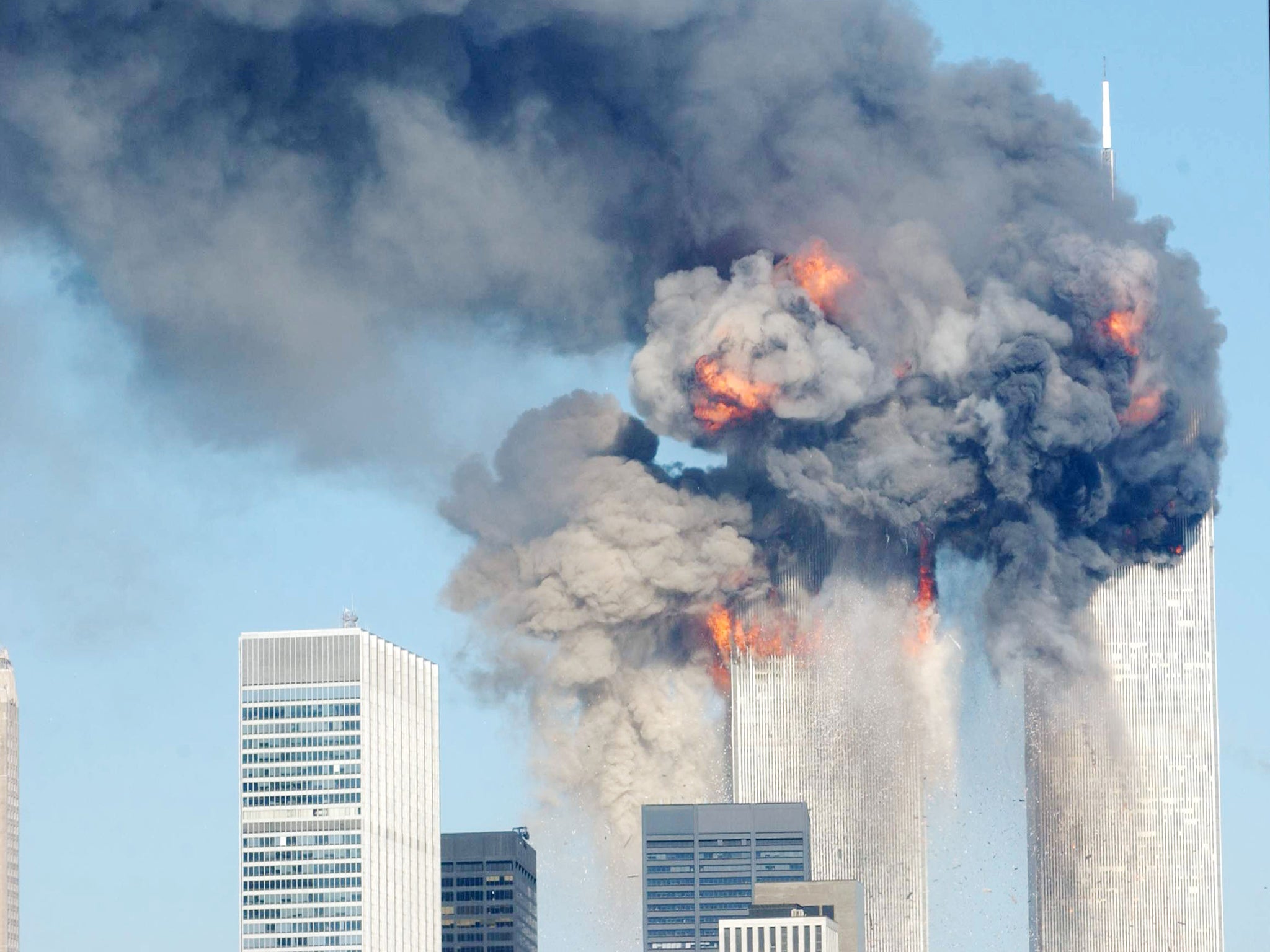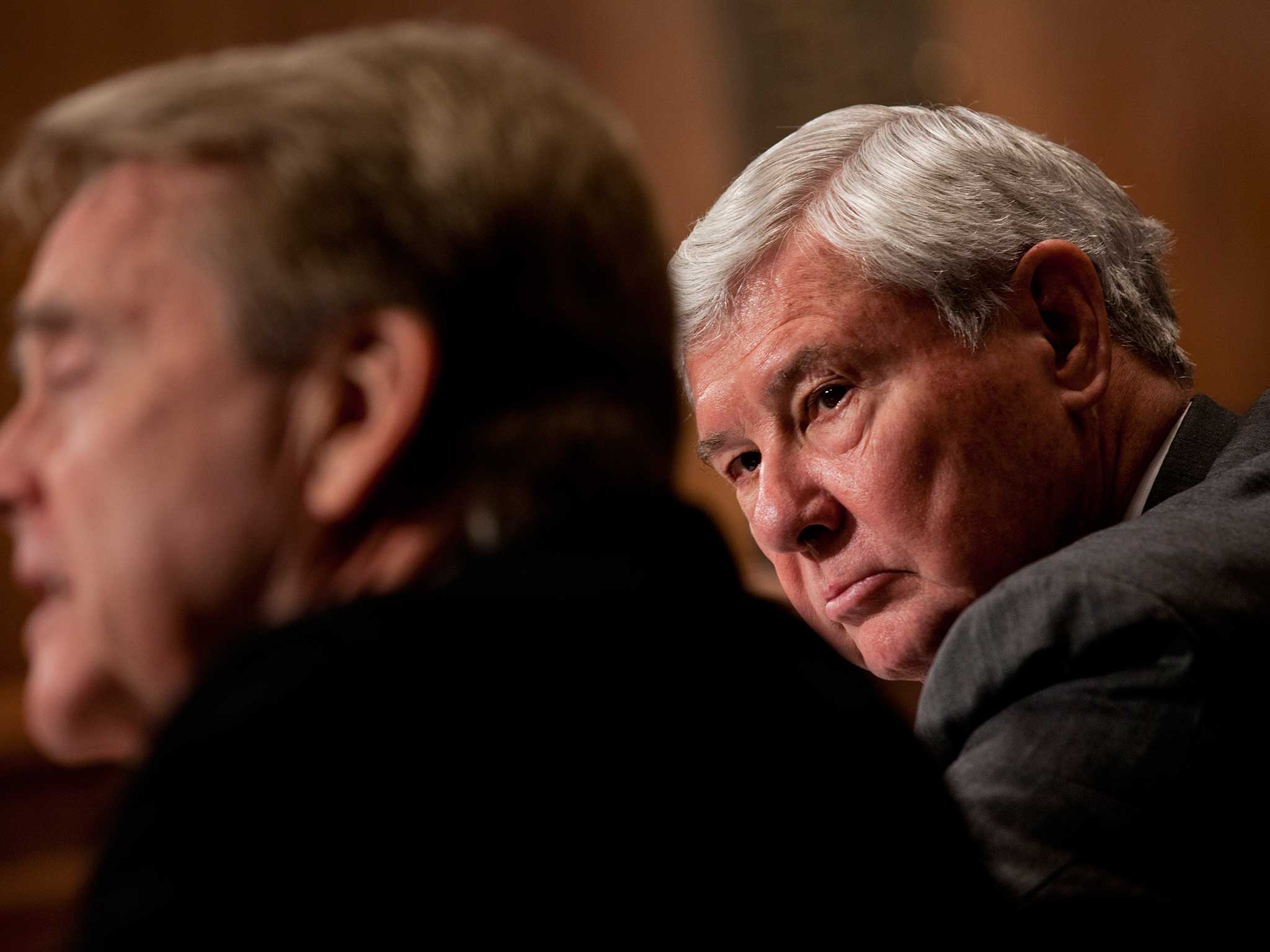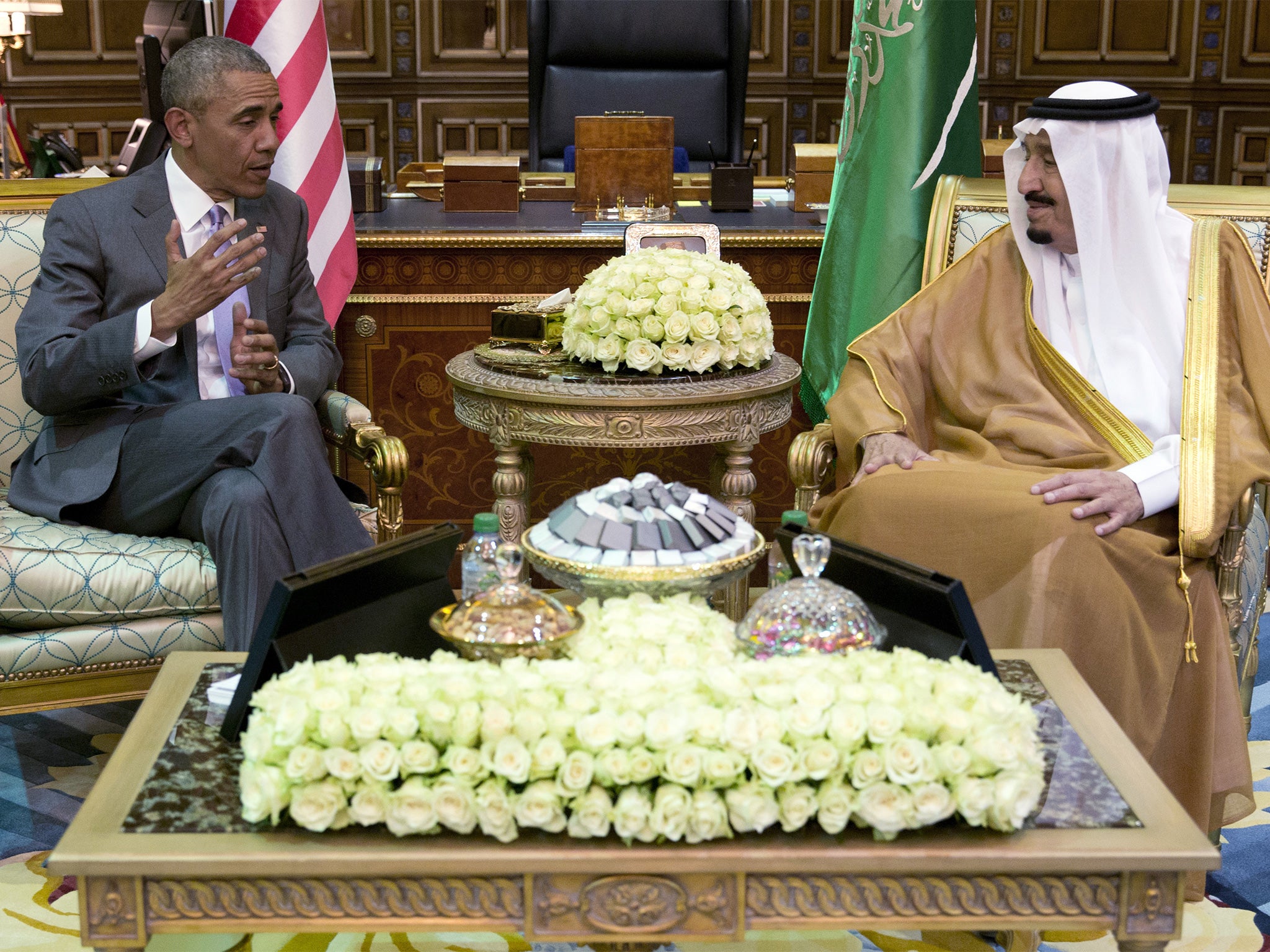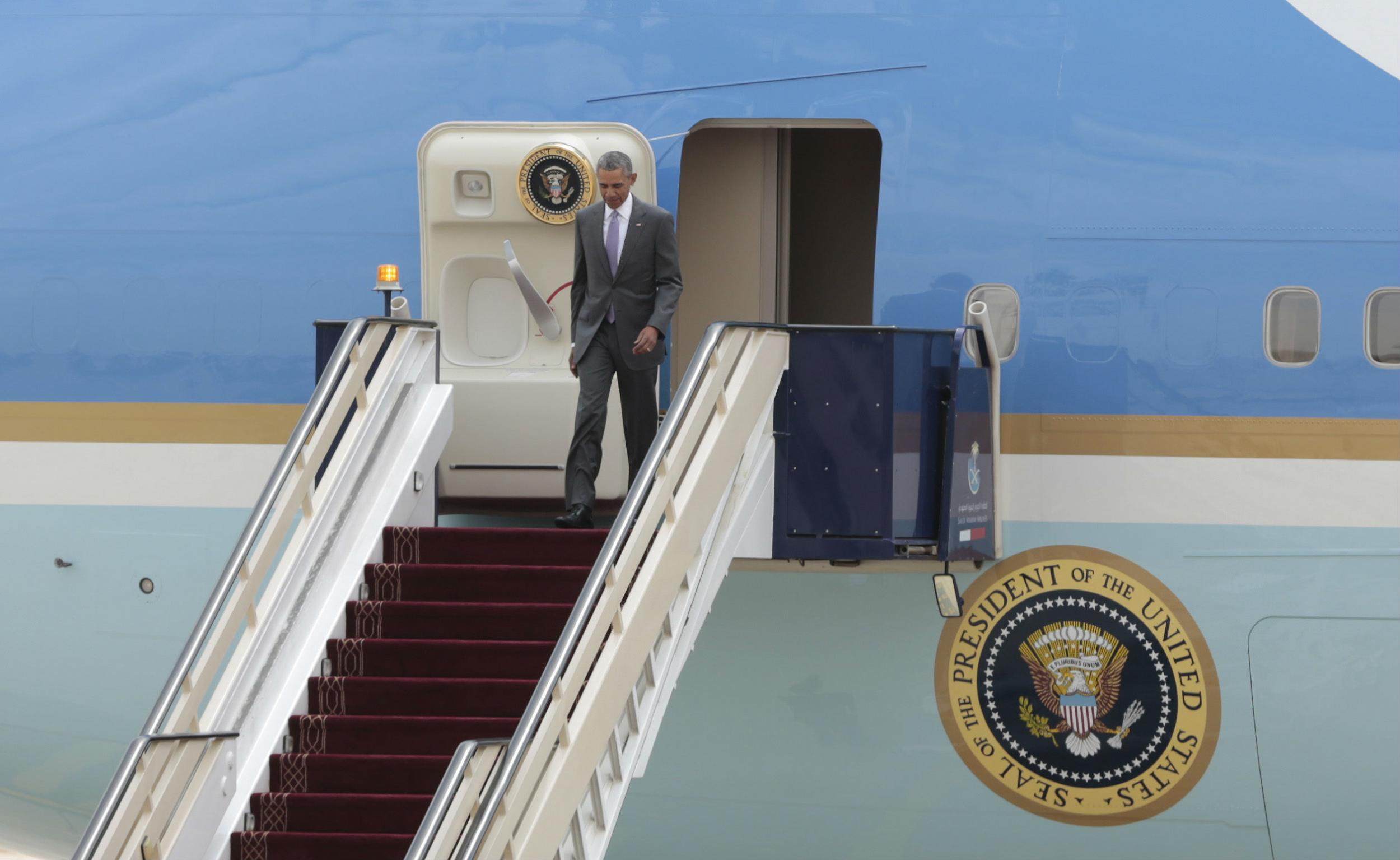9/11 report: Obama administration 'set to release' secret 28 pages
There is speculation the documents could raise questions about whether some Saudi officials supported the attacks

Your support helps us to tell the story
From reproductive rights to climate change to Big Tech, The Independent is on the ground when the story is developing. Whether it's investigating the financials of Elon Musk's pro-Trump PAC or producing our latest documentary, 'The A Word', which shines a light on the American women fighting for reproductive rights, we know how important it is to parse out the facts from the messaging.
At such a critical moment in US history, we need reporters on the ground. Your donation allows us to keep sending journalists to speak to both sides of the story.
The Independent is trusted by Americans across the entire political spectrum. And unlike many other quality news outlets, we choose not to lock Americans out of our reporting and analysis with paywalls. We believe quality journalism should be available to everyone, paid for by those who can afford it.
Your support makes all the difference.The US government appears set to release at least part of a 28-page classified chapter from a report that could point to Saudi connections to the 9/11 terror attacks.
The former head of a bi-partisan committee that investigated the attacks that left more than 3,000 people dead and published its findings, said he believed the Obama administration would make a decision on the issue by June.
The unreleased documents, kept in a secure room in the basement of the Capitol building in Washington DC, contain information from the joint congressional inquiry into “specific sources of foreign support for some of the September 11 hijackers while they were in the United States”.

Mr Graham, a former Democratic senator, said a government official told him that intelligence officials will decide in the next several weeks whether to release at least parts of the documents. The disclosure would come at a time of strained US relations with Saudi Arabia, a long-time American ally.
“I hope that decision is to honour the American people and make it available,” Mr Graham told NBC on Sunday. “The most important unanswered question of 9/11 is, did these 19 people conduct this very sophisticated plot alone, or were they supported?”
Tim Roemer, who was a member of both the joint congressional inquiry as well as the 9/11 Commission and has read the secret chapter three times, described the 28 pages as a “preliminary police report.”
“There were clues. There were allegations. There were witness reports. There was evidence about the hijackers, about people they met with — all kinds of different things that the 9/11 Commission was then tasked with reviewing and investigating,” said the the former Democratic congressman, according to the Associated Press.
Fifteen of the 19 hijackers were citizens of Saudi Arabia and the Saudi government has always denied supporting the attackers, something supported by the findings of the US official report. Ironically, the Saudis have long said that they would welcome declassification of the 28 pages because it would “allow us to respond to any allegations in a clear and credible manner”.
However, the potential release of the papers comes at a time of no small tension between the US and Saudi Arabia. The Sunni kingdom believes the US has not sufficient pushed back at Iranian expansion in the Middle East, especially in Syria where it is leading the fight against Isis.

It is also deeply concerned about legislation passing through the US senate that would open the way for the relatives of those who died in 9/11 to use US courts to target Saudi officials, banks and charities. Yet these efforts have been largely blocked because of a 1976 law that gives foreign nations some immunity from such lawsuits.
The Senate bill was introduced to make clear that the immunity given to foreign nations under the law should not apply in cases where nations are found culpable for terror attacks that kill Americans on United States soil.
Ben Rhodes, President Barack Obama's deputy national security adviser, said President Obama had asked National Intelligence Director James Clapper to review the 28 papers for possible declassification.
“When that’s done we'd expect that there will be some degree of declassification that provides more information,” Mr Rhodes told reporters in Riyadh last week, where Mr Obama met with King Salman and other Saudi leaders. The White House says the 28 pages did not come up during discussions.
The news agency said that Mr Roemer said many questions remain about the roles of Fahad al Thumairy, an official at the Saudi consulate in Los Angeles who allegedly helped two of the hijackers find housing and transportation after they arrived in Southern California.
Al Thumairy was later denied entry into the United States in May 2003 after the State Department alleged that he might be involved in terrorist activity. Mr Roemer also wants to know more about Omar al Bayoumi, who was strongly suspected of being a Saudi spy and was alleged to have been helpful to the hijackers.

“We did not discover….Saudi government involvement at the highest level of the 9/11 attacks,” said Mr Roemer, who went on to serve as the US’s ambassador to India.
But he added: “We certainly did not exonerate the Saudis. ... Saudi was a fertile ground for fundraising for Al-Qaeda. Some of these issues continue to be problems today. That's why we need to continue to get to the bottom of this.”
An Internet site pushing to get the documents released, 28pages.org, points to another document declassified in July 2015 that outlined ways in which the commission could examine possible Saudi links.
That 47-page document lists several pages of individuals of interest and suggests questions that could be pursued. One name is suspected Al-Qaeda operative Ghassan al Sharbi.
Al Sharbi, who was taking flight lessons in the Phoenix area before 9/11, was captured in 2002 in the same place in Pakistan as Abu Zubaydah, a top Al-Qaeda trainer who was apprehended and waterboarded dozens of times by US interrogators.
The document said that after al Sharbi was captured, the FBI discovered some documents buried nearby. One was al Sharbi's pilot certificate inside an envelope from the Saudi Embassy in Washington, although it's unclear whether the license had been mailed by the embassy or if the envelope was simply being reused.
A CIA inspector-general report in June 2015 said there had been no reliable information confirming Saudi government “involvement with and financial support for terrorist prior to 9/11.”
But it said also that people in the CIA’s Near East Division and Counterterrorism Center “speculated that dissident sympathisers within the government may have aided Al-Qaeda.’ The rest of the chapter, titled “Issues Related to Saudi Arabia,” is blacked out.
When Mr Graham was asked on Sunday how much - on a scale of one to ten - the release of the 28 pages would impact US-Saudi relations, he said: “7.838.”
He was subsequently asked whether that meant it would be a high level negative impact, to which Mr Graham said: “Yes”.
Join our commenting forum
Join thought-provoking conversations, follow other Independent readers and see their replies
Comments